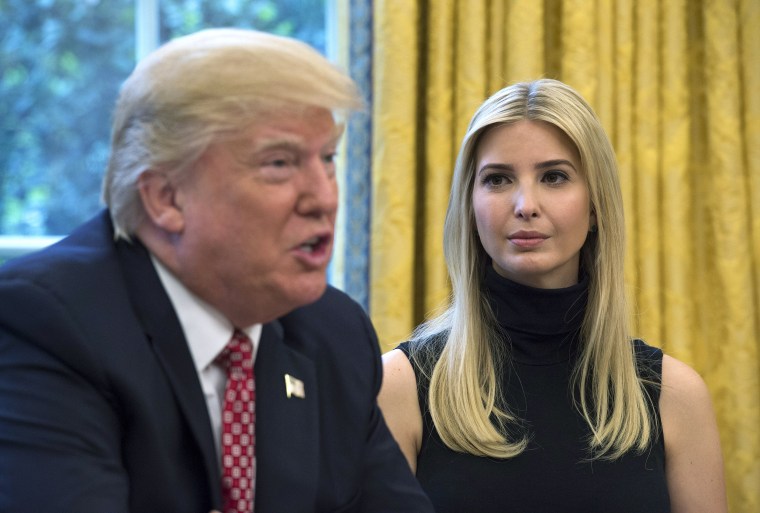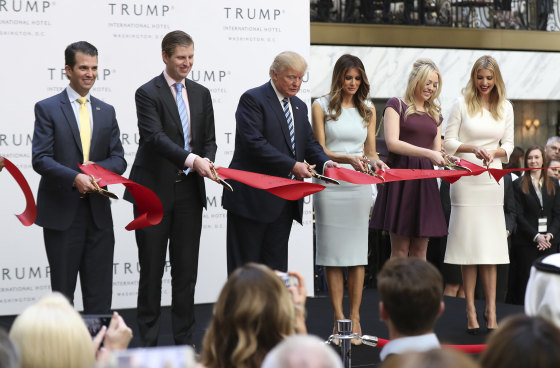As 2018 gets underway, many are continuing to look for ways to remove President Donald Trump from office. Recently, some Trump critics had staked their hopes on an arcane, little-known and virtually impossible-to-pronounce Constitutional provision known at the emoluments clause. But thanks in part to a recent federal court decision, we may never know what the clause means. While the court battles will continue, it now seems likely that the emoluments clause will not be the legal vehicle that ushers Trump out of the Oval Office.
If you’re wondering why you’ve never heard of this clause, or at least didn’t hear about it before the Trump presidency, it’s because our previous presidents have seemed to steer relatively clear of the myriad conflicts of interest that Trump possesses. Trump reportedly owns or possesses an interest in several hundred companies, many of which do some business in foreign countries, with entities controlled by foreign governments. Trump neither divested his investments nor did he put his investments in a blind trust: Putting your adult children in charge of your business holdings, as he has, is a far cry from blind trust. That is just outsourcing to your family.
But back to the Constitution. Article I, Section 9, Clause 8 of the Constitution provides:
No title of nobility shall be granted by the United States: and no person holding any office of profit or trust under them, shall, without the consent of the Congress, accept of any present, emolument, office, or title, of any kind whatever, from any king, prince, or foreign state.
In plain English, the clause prohibits certain governmental officials from receiving gifts, offices, titles, or emoluments from members of foreign governments without approval from Congress.
The clause is designed to ensure that government officials serve the American people and not themselves. It is meant to prevent foreign governments from trying to exert undue influence over our officials or from our officials trying to favor certain foreign officials or governments for their personal gain. The slogan of the clause might be: serve the public, not yourself.
But the clause, like so many other parts of the Constitution, is hardly a model of clarity and raises more questions than it answers. For instance, which government officials are covered? It also does not specifically mention the president, although other clauses do. Instead it refers to those holding an “office or profit or trust.” Therefore there is some debate about whether the emoluments clause applies to our top government official.
Considering the purpose of the clause, it would be bizarre if the framers of the Constitution were worried about foreign influences on lower level federal officials, but not the leader of the federal government. The weight of centuries of legal interpretation and history are on the side of those arguing that the clause covers the president.
The clause is designed to ensure that government officials serve the American people and not themselves.
Also, we are not really worried about Trump receiving presents, offices, or titles; instead we are worried about emoluments. But what even is an emolument? Broadly defined, an emolument is a benefit or gain. It is generally understood to mean some compensation for services rendered.
There is some debate about whether the clause only applies to sweetheart deals or to fair market deals as well. Here I think the better reading of the Constitution and the history behind the clause indicates that the clause applies whenever the official receives some benefit, even those that accrue from fair market transactions, like renting a hotel room for the rate offered to all members of the public.
The reason we have all these questions about the emoluments clause is because it has not been evaluated in court. In other words, there is no legal precedent.
There have been three different lawsuits filed against Trump based on a violation of the emoluments clause.
The hurdle facing the plaintiffs in all of the suits is the same — something called “standing.” If you want to sue in federal court, you (as a person, an organization or a representative of the government) need standing. This means you had an actual or imminent injury which is concrete and particularized. You can’t just march into federal court and say “I was harmed.” You have to show a specific type of harm and demonstrate that if you win, that harm will be remedied.

The first involved a suit by a non-profit organization called Citizens for Responsibility and Ethics in Washington (or CREW).
CREW’s suit ultimately failed based on lack of standing. CREW found people who work at businesses that compete with Trump’s businesses and claimed that they’re unfairly losing business because foreign officials are now using, staying, or eating at Trump’s businesses instead of their businesses.
The judge’s opinion boiled down to the idea that CREW’s plaintiffs couldn’t show that their economic injury was caused by a violation of the emoluments clause, and they could not show that if they won, that would have the effect of solving their injury.
The judge also said this issue is one best left up to the legislative branch, not the judicial branch. Noting that Congress has the power to consent to behavior that would otherwise violate the clause, the judge held that members of Congress, not judges, should determine when there is a violation.
The standing doctrine may well sound the death knell to the other two cases based on the emoluments clause.
One case, filed by the attorneys general from Maryland and the District of Columbia, is based on both the foreign emoluments clause and the domestic emoluments clause. This separate clause prohibits the president from receiving any benefits from any level of government (federal, state or local) other than his salary.
The hurdle facing the plaintiffs in all of the suits is the same — something called “standing.”
With respect to standing, Maryland and D.C. contend that Trump’s Washington D.C. hotel is taking business (business by foreign officials) away from those jurisdictions and that they are losing money as a result. This argument boils down to a similar economic injury argument that was unsuccessfully made in the CREW case. There is some case law to indicate that states are treated as different from private individuals or groups for purposes of standing, but this is still far from a slam dunk.
And finally, there is a third suit filed by almost 200 Democratic members of Congress alleging that they should have been asked to vote on whether or not Trump can receive emoluments before he started receiving them. This suit is a bit bizarre because Congress could, but has chosen not to, vote on this issue.
The question here is whether Congress has special standing on this issue, in part because the Constitution specifically provides that Congress can consent to the receipt of emoluments. But members of Congress are not suing based on the idea that they have been individually injured, and they are not suing as the entire congressional body; instead part of the legislative body. This will complicate the arguments that they have standing.
If one thing is clear, particularly in the wake of the dismissal of the CREW case, it is that any plaintiffs who sue Trump for a violation of the emoluments clause face an uphill battle to clear the threshold issue of standing. This may mean that the only people who can weigh in on a potential violation are elected members of government. And therefore, much like all of the discussions surrounding impeachment, a legal question becomes a political question.
The founding fathers were understandably and wisely worried about foreign meddling in our government. Those fears are no less real today — and perhaps even more so. While many of us believed Trump is a walking emoluments clause violation, we may never gain clarity on this issue.
Jessica A. Levinson is a professor at Loyola Law School, Los Angeles and president of the Los Angeles Ethics Commission. She tweets at @LevinsonJessica.

